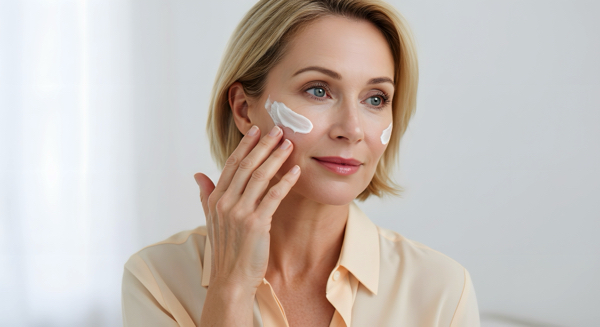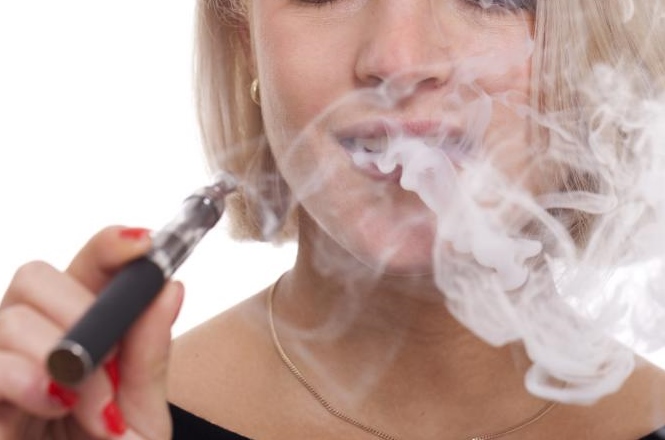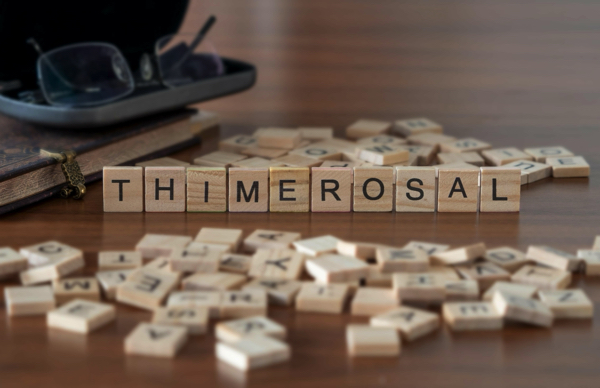The dark side of retinoids: Toxicity, risks and the illusion of flawless skin
06/26/2025 / By Zoey Sky

- Retinoids are synthetic vitamin A derivatives (e.g., retinol, tretinoin, adapalene, isotretinoin) used to address acne and signs of aging. They work by speeding up skin cell turnover, unclogging pores and boosting collagen, but their potency comes with risks.
- Retinoids cause skin irritation (redness, peeling, extreme sensitivity) and can increase sun damage risk. Oral retinoids (like Accutane) can cause severe birth defects and require strict pregnancy prevention.
- Long-term use may thin the skin, weaken its barrier and potentially harm the liver.
- Retinoids are found in acne treatments (Differin, Proactiv), anti-aging creams (Retin-A, RoC) and serums often misleadingly marketed as “safe” cosmetics.
- Safer alternatives to retinoids include bakuchiol, niacinamide (Vitamin B3) and peptides and antioxidants (Vitamin C, E).
The dermatology and cosmetics industries have long hailed retinoids, synthetic derivatives of vitamin A, as miracle workers for acne and anti-aging. Often marketed under glamorous names such as retinol, tretinoin and adapalene, these compounds promise smoother skin, fewer wrinkles and a blemish-free complexion.
Yet beneath the glossy marketing lies a troubling reality: Retinoids are potent chemicals with significant toxicity, capable of causing severe side effects.
While retinoids may deliver short-term cosmetic improvements, their long-term safety remains questionable, and safer alternatives exist for those unwilling to gamble with their health.
Retinoids: Common uses and toxicity
Retinoids are a class of compounds derived from vitamin A (retinol), modified synthetically to enhance their effects on the skin.
Retinoids function by accelerating cell turnover, unclogging pores and stimulating collagen production — mechanisms that make them effective against acne and signs of aging.
Common retinoids found in cosmetics and prescription treatments include:
- Retinol – A milder, over-the-counter (OTC) form used in many anti-aging creams.
- Tretinoin (Retin-A) – A stronger prescription retinoid used for acne and wrinkles.
- Adapalene (Differin) – Originally prescription-only, it is now available OTC for acne.
- Isotretinoin (13-cis retinoic acid, Accutane) – An oral retinoid reserved for severe cystic acne that’s notorious for its extreme side effects.
Despite their popularity, retinoids are not benign skincare ingredients. Their potency comes with a price, one that many consumers remain unaware of until it’s too late.
Retinoids are biologically active molecules that interfere with cellular processes, which is precisely why they work and why they’re dangerous. Their toxicity manifests in several ways:
Skin irritation and damage
Retinoids are notorious for causing redness, peeling and extreme sensitivity, a phenomenon dubbed “retinoid dermatitis.” Users often endure weeks of painful irritation before their skin adjusts, if it ever does.
Worse, retinoids increase photosensitivity, meaning it makes skin more vulnerable to UV damage, which ironically accelerates aging and raises cancer risks.
Systemic toxicity and birth defects
Oral retinoids like isotretinoin (Accutane) are teratogenic, meaning they cause severe birth defects. Women prescribed isotretinoin must undergo strict pregnancy prevention programs, yet accidental exposures still occur.
Even topical retinoids carry warnings against use during pregnancy due to potential systemic absorption.
Long-term health concerns
Chronic retinoid use may disrupt natural skin function, leading to thinning (atrophy) and impaired barrier function.
Some studies suggest that prolonged retinoid exposure could also cause liver toxicity, though research remains inconclusive. (Related: Behind the swipe of lip gloss: Benzyl cinnamate’s adverse effects reveal the dark side of cosmetics.)
Retinoids lurk in a disturbing number of products, often under misleading labels:
- Acne treatments (e.g., Differin Gel, Proactiv)
- Anti-aging creams (e.g., RoC Retinol Correxion, Neutrogena Rapid Wrinkle Repair)
- Prescription medications (e.g., Retin-A, Tazorac)
- Serums and night treatments (e.g., The Ordinary Retinol, Paula’s Choice 1% Retinol)
Many consumers assume that because these products are sold OTC, they must be safe. This is a dangerous misconception because retinoids are drugs, not harmless cosmetics.
Natural alternatives to retinoids
For those unwilling to subject their skin to retinoid-induced damage, here are safer natural alternatives to look for:
Bakuchiol
Bakuchiol is a plant-derived retinol alternative that mimics its effects without irritation or toxicity. Studies show it boosts collagen production without causing side effects.
Niacinamide (vitamin B3)
Niacinamide reduces inflammation, improves skin barrier function and fades hyperpigmentation without causing sensitivity.
Peptides
Peptides stimulate collagen production naturally, offering anti-aging benefits without causing cellular disruption.
Antioxidants (Vitamins C, E and ferulic acid)
Antioxidants like vitamins C, E and ferulic acid help protect against free radicals and support skin repair.
These alternatives may work more slowly, but they don’t come with retinoids’ alarming side effects.
How to detox from retinoids
Once retinoids enter your system, they can linger. There is no quick “detox,” but discontinuing use allows your skin to recover.
To save your skin and your health, you must:
- Cease using retinoid-containing products immediately.
- Repair your skin barrier with ceramides, hyaluronic acid and soothing agents like aloe vera.
- Avoid sun exposure until your skin sensitivity normalizes.
- Switch to products that use gentler ingredients like those mentioned above.
Your body will eventually eliminate retinoids, but the damage, especially from prolonged use, may not be fully reversible.
The retinoid craze is a testament to society’s obsession with getting flawless skin at any cost. Dermatologists and cosmetic companies downplay the risks, framing side effects as mere “adjustment periods.” But retinoids are potent drugs with documented toxicity and are capable of causing lasting harm.
If you’re seeking healthier skin, steer clear of retinoid products that cause irreversible damage and embrace safer, sustainable skincare that respects your body’s limits.
This story is not medical advice and is not intended to treat or cure any disease. Always consult with a qualified naturopathic physician for personalized advice about your specific health situation or concern.
NaturalNews.com has more stories about harmful cosmetic ingredients and safer natural alternatives. Find lab-verified skincare products that are free of harmful chemicals like retinoids at the Health Ranger Store and Brighteon Store.
Brighteon.ai is an AI model created by Mike Adams, also known as the Health Ranger. It is available as a free download to be run locally and is designed to help share and decentralize knowledge. By bypassing censorship, it aims to empower people with knowledge.
If you’re searching for a platform that champions uncensored video content and free speech, particularly for discussions on nutrition, natural medicine, ingredients and related topics, visit Brighteon.com. This website offers a space for open dialogue and exploration of these subjects without restrictions.
Brighteon.IO and Brighteon.social are two free speech-focused social media platforms where users can openly discuss topics such as health, nutrition, ingredient safety, toxicity and related subjects without fear of censorship. These platforms aim to provide a space for unrestricted dialogue on critical issues.
Watch the video below to learn about collagen and how it can support healthy skin.
This video is from the Health Ranger Store channel on Brighteon.com.
More related stories:
Harmful ingredients in personal care products.
Boost your skin health with astaxanthin, a potent natural antioxidant.
Prepper’s guide to using ESSENTIAL OILS for skincare.
Sources include:
Submit a correction >>
Tagged Under:
acne, allergens, anti-aging, cancer criminals, carcinogens, Cosmetics, health science, men's health, products, Retinol, skin care, skin health, toxic chemicals, toxic ingredients, toxins, vitamin A, women's health
This article may contain statements that reflect the opinion of the author





















